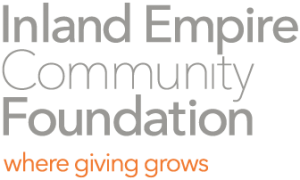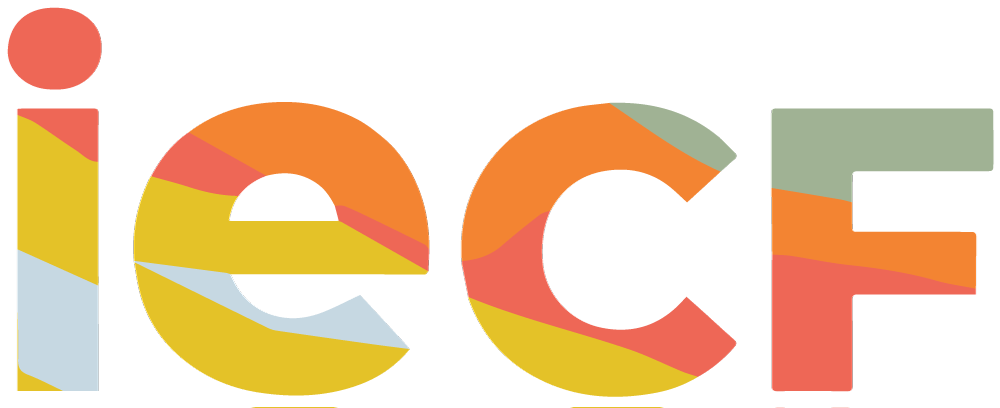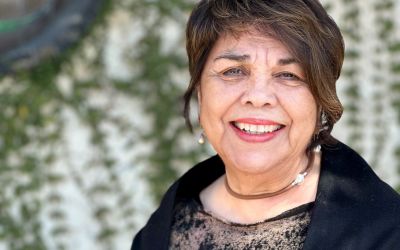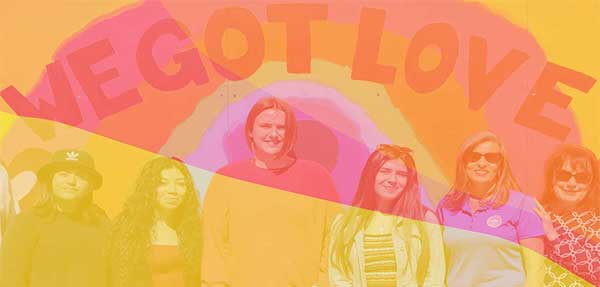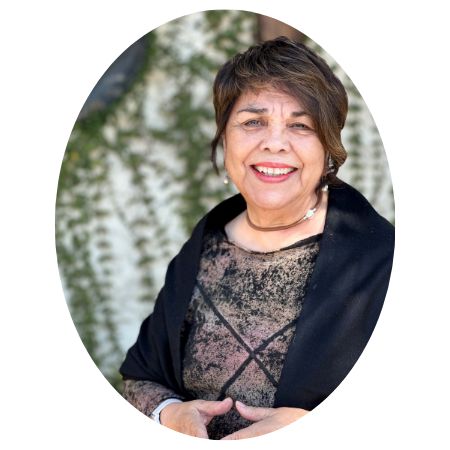
For over 50 years, Gloria Macias Harrison has dedicated her life’s work to the betterment of her community through communication, activism and education.
As co-founder of El Chicano newspaper and co-owner of Inland Empire Community News, her family-run publications have been the voice of the community since 1969. The independent publication El Chicano is one of the longest-running minority-owned newspapers in the nation.
Gloria remembers her first foray into activism as a teen, helping her dad hand out flyers about the fight for San Bernardino’s water rights.
A dual-career woman, she taught and worked in administration for the San Bernardino Community College District for over 20 years. She was elected to the San Bernardino Community College Board of Trustees in 2012 and continues in that capacity today.
A longtime friend of the Inland Empire Community Foundation, Gloria has served as a board member and board president of IECF, and as an advisor to the Youth Grantmakers program. Committed philanthropists, she and her late husband Bill opened the Bill and Gloria Harrison Donor Advised Fund at IECF in 2008 and the Harrison Family Fund in 2019. Through their funds and their charitable giving, they have supported numerous nonprofit organizations in the arts, education, health and human services in the greater San Bernardino area.
Education has been their passion. “If we can be an influence in a child’s life, that’s the most important thing,” says Gloria. “We want to raise the level of critical thinking and knowledge for our children. Our hope is that it will help build a healthy community.”
In 2017, their beloved daughter Diana passed away unexpectedly. The Diana Harrison Fund was established in her memory at IECF to provide scholarships to Crafton Hills College and San Bernardino Valley College.
Having a close family connection has always been important to Gloria. Raised by their grandmother and uncle, Gloria and her sister Marta were steeped in the traditions of their mestizo heritage. “My grandmother was a devout Catholic from the central part of Mexico, but she was also a knowledgeable herbalist who practiced the medical traditions of the indigenous culture. We never saw a doctor until our teens.” Their grandmother also taught the girls that “a well-educated person didn’t just have book learning. They knew how to behave in public and how to interact with other people.” It was a strict household with an emphasis on hard work and education. Everyone had a job and they pooled their funds for the benefit of the family.
Gloria’s uncle, whom she refers to as her dad, “was a self-educated man who could squeeze ten cents out of a nickel,” she recalls wryly. When he spent money on extras, it went to books and a newspaper subscription. As an early pioneer in Spanish language radio, he had his own show and sold advertising to business owners on E Street in San Bernardino. He bought the girls tricycles so they could accompany him, marking Gloria’s entrance into the field of media communications. Years later when her own newspaper’s funding was cut off (a political cartoon was met with disfavor by those who held the purse strings), Gloria knew what to do. She sold advertising to local merchants.
The origins of the El Chicano newspaper began with a discussion group, Gloria tells us. “We identified the worst things happening to us as Mexican Americans, and those included job discrimination, poverty, police brutality and education. But the media wasn’t telling our story. We were portrayed as lazy, or as comic figures like the Frito Bandito. So we said, okay, we can tell our own stories and highlight both the good things and the bad that are happening in our community.”
“But if you look at the issues of that time, the issues have not changed much today,” she says. “We’ve made some progress, but we need to make more. We have a slightly better image in the media. So, to me, the next step is the development of responsible, value-based leadership among Latinos.”
As a community college district trustee, Gloria sees the number of women seeking education is on the rise. “57% of our students are female. Many are returning students, divorced, or single parents. We’re seeing them succeed, but not at the levels we’d like.” She’s a believer in the value of partnerships in households, which allow both men and women to seek advanced education and good jobs. “One of the things that I love about my husband is that when we were first married, being a good Latina and a good wife, I spent all my time cleaning and cooking – even though I had a college degree. He said, ‘I didn’t marry you to do the laundry and cooking and tend to the children. I wanted a partner.’” This teamwork approach further enabled Gloria to become the community leader she is today.
When asked what she considers her greatest accomplishments, Gloria defers. “I’ve had an interesting life; it has been a learning adventure. I have been fortunate to have so many people coming in and out of my life, good or bad, but these interactions have helped me become who I am. Our life is a journey and we can’t all do the same thing. We all need to do something to better ourselves and our community.”
Gloria reflects on the words of an author who said, “A person is a person if they are carne y gueso – a person of substance.” She interprets this to mean that this is someone who is “not just a spirit floating through life, letting life lead them along. I really do believe that the people who make the biggest difference are the ones who have constantly modeled their actions to their values. And you have to start with family, then community, then your region, your state, your nation.”
IECF offers our heartfelt thanks to Gloria for her partnership, leadership and example to the community.
In celebration of Women’s History Month, we’re proud to share the stories of several Women in Philanthropy. These are generous supporters whose donations undergird our efforts to create a vibrant, prosperous and shared future for all.
Learn how you can create a legacy that lasts. Contact our Charitable Giving Team or visit our Planned Giving website.
Stay up-to-date on all the good work we’re doing in the Inland Empire! Sign up for our free monthly eNewsletter.
MAILING LIST
